 A person invests £1365 in the 3 per cents. at 91 ; he sells out £1000 stock when they have risen to 93J, and the remainder when they have fallen to 85. How much does he gain or lose by the transaction ? 12. A person invests £1365 in the 3 per cents. at 91 ; he sells out £1000 stock when they have risen to 93J, and the remainder when they have fallen to 85. How much does he gain or lose by the transaction ? 12.  A Treatise on Arithmetic - Page 288by James Hamblin Smith, Thomas Kirkland - 1877 - 345 pagesFull view A Treatise on Arithmetic - Page 288by James Hamblin Smith, Thomas Kirkland - 1877 - 345 pagesFull view - About this book
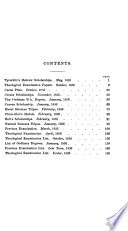 | Cambridge univ, exam. papers - 1856 - 200 pages
...cents, at 91, he sells out £1000 stock when they have risen to 93i, and the remainder when they have fallen to 85. How much does he gain or lose by the transaction? If he invests the produce in 4£ per cents, at 102, what is the difference in his income? SECOND DIVISION.—(B.)... | |
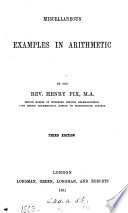 | Henry Pix - 1861 - 116 pages
...cents. at 91 ; he sells out £1000 stock when they have risen to 93J, and the remainder when they have fallen to 85. How much does he gain or lose by the transaction ? If he invests the produce in 4£ per cepts. at 102, what is the difference in his income ? 14. At what time... | |
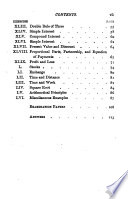 | T. Dalton - Arithmetic - 1866 - 180 pages
...cents. at 91 ; he sells out £3000 stock when they have risen to 93£, and the remainder when they have fallen to 85. How much does he gain or lose by the transaction 1 If ho invests the produce in the 4£ per cents. stock at 102, what is the difference in his income'/... | |
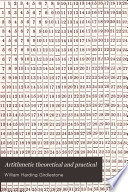 | William Harding Girdlestone - 1867 - 368 pages
...cents. at 91 ; he sells out £5000 stock when they have risen to 93J, and the remainder when they have fallen to 85. How much does he gain or lose by the transaction ? If he invests the produce in 4J per cent. stock at par, what is the difference in his income ? Second Division... | |
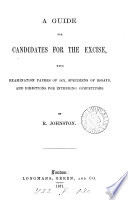 | Robert Johnston (F.R.G.S.) - Civil service - 1871 - 76 pages
...cents at 91, and sells £1,600 stock when they have risen to 93J, and the remainder when they have fallen to 85 ; how much does he gain or lose by the transaction ? 7. Find the cube root of 1157|. 8. By selling goods at £5 5*. 6d. per cwt., 5£ per cent, is gained... | |
 | Civil service - 1871 - 264 pages
...cents, at 91 ; he sells^out 1000Z. stock when they have risen to 93 i, and the remainder when they have fallen to 85. How much does he gain or lose by the transaction ? 6. Multiply by duodecimals 9 feet 7 inches 3 pts. by 5 feet 7 inches 11 pts., and the product by... | |
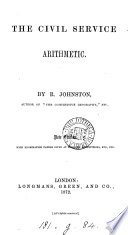 | Robert Johnston (F.R.G.S.) - 1872 - 342 pages
...cents. at 91 ; he sells out £200 stock when they have risen to 93J, and the remainder when they have fallen to 85. How much does he gain, or lose, by the transaction ? If he invests the produce in the 4-J- per cents. at 102, what will be the difference in bis income ? 110.... | |
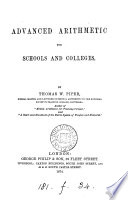 | Thomas W. Piper - 1874 - 352 pages
...cents. at 91 ; he sells out £5000 Stock when they have risen to 93J, and the remainder when they have fallen to 85. How much does he gain or lose by the transaction ? If he invests the produce in •!.} per cent. Stock at par, what is the difference in his income ? 29. What... | |
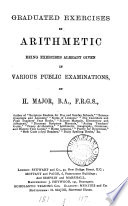 | Henry Major - 1875 - 204 pages
...cents. at 91 ; he sells out £1000 stock when they have risen to 93£, and the remainder when they have fallen to 85. How much does he gain or lose by the transaction ? ULE 441. Explain the meaning of Interest: and distinguish between simple and compound interest. Shew... | |
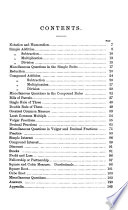 | William Abbotts Snaith - 1876 - 166 pages
...cents, at 91 ; he sells out £1000 stock when they have risen at 93 J ; and the remainder when they have fallen to 85. How much does he gain or lose by the transaction ? CJ 1870. 9. I buy 10 shares of £20 each at 27 J ; I receive a dividend of 15 per cent., and then... | |
| |